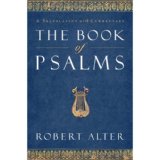The use of Psalm 69 in John 2:17
Psalm 69 is David praying to God about his enemies that are more numerous than the hairs on his head. He is fearful lest others who love God suffer because David is known to love God and is in disrepute. It is because of his zeal for God that he suffers.
Verse 9, quoted in John 2, comes in that context. David has zeal for God’s house, and because of that zeal he is suffering as he is. So, “consume” does not just mean “absorb”, in the sense that he is consumed with passion for God’s house. Rather, his zeal for God’s house is eating him up; it is leading to his mistreatment.

Recent comments